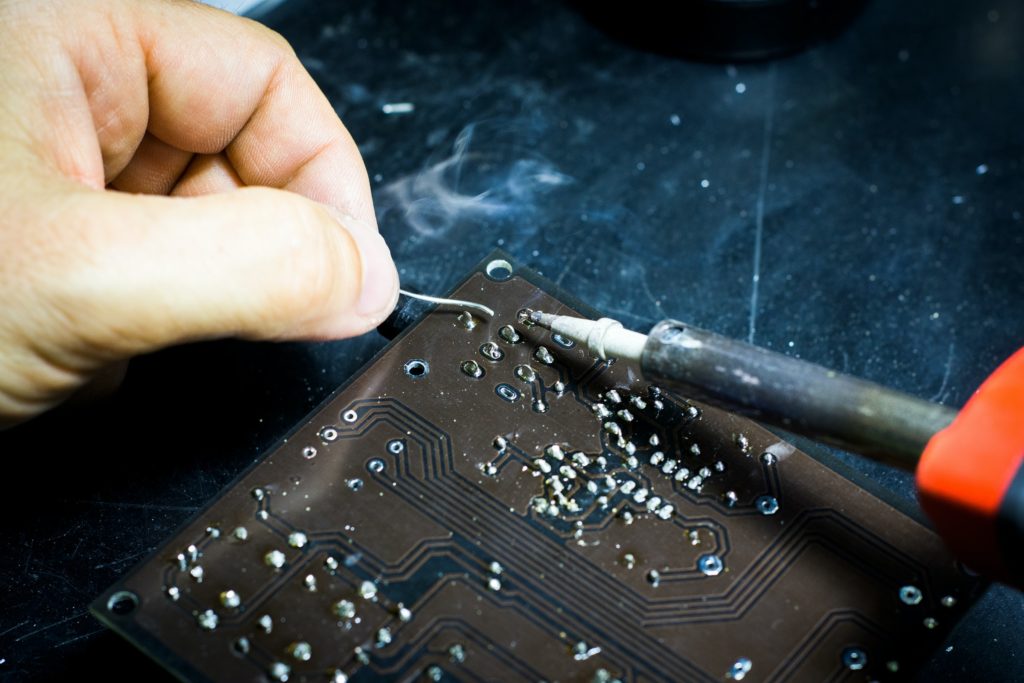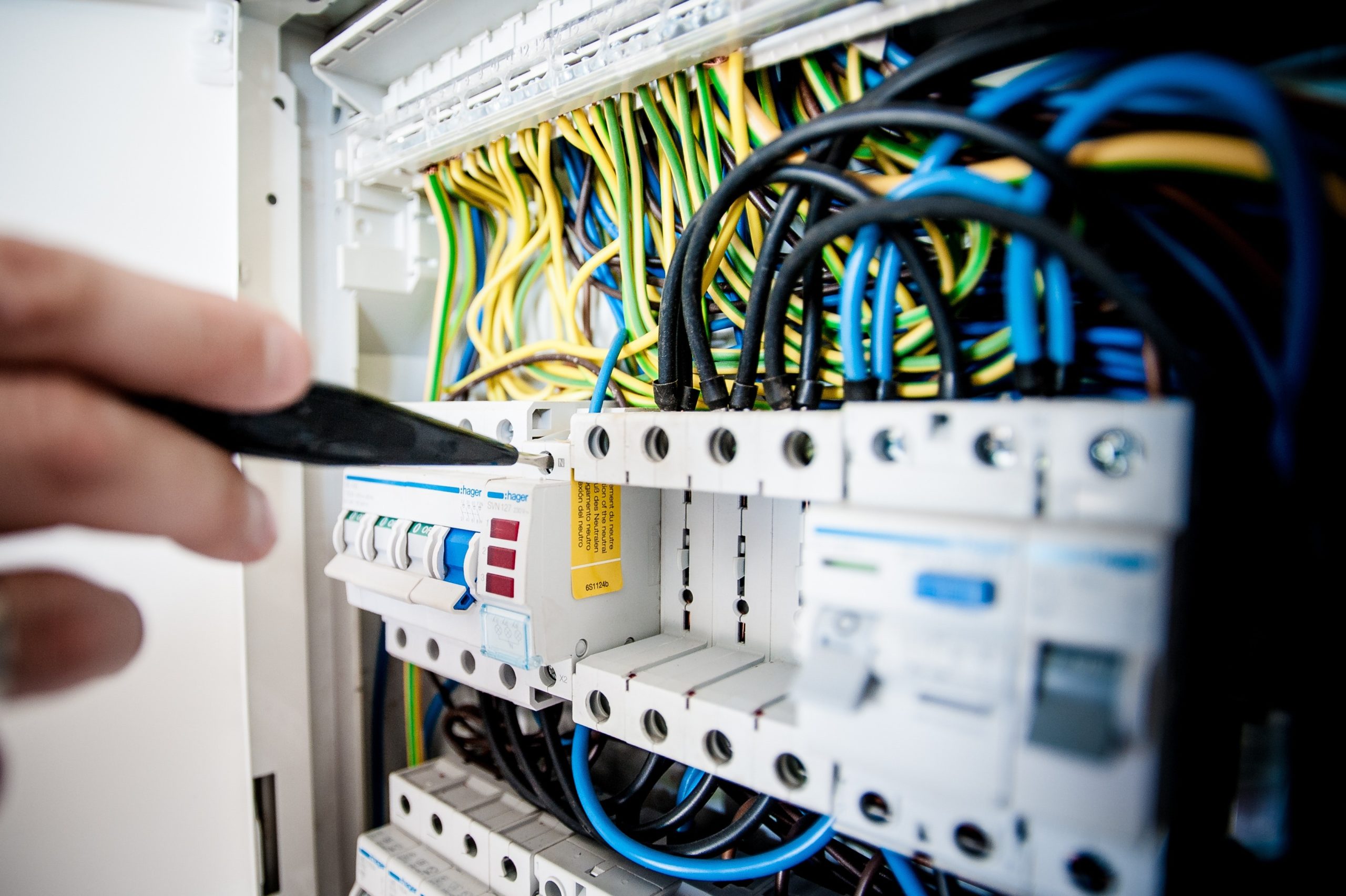A mechanical engineer in the electrical field has a specific set of duties that they are responsible for. This makes them slightly different from either of the mechanical or electrical engineer job titles.
First, if you’re looking to launch your own blog and start writing articles yourself, no matter what the subject, you can launch your blog with Bluehost for just $3.95/month.
Start creating content and launch your blog with Bluehost.
Mechanical Engineer
Mechanical engineering is one of the oldest and broadest engineering disciplines. Mechanical engineers design, research, develop, manufacture and test: engines, tools, machines and other mechanical devices. Engineers in this discipline work on power producing machines such as internal combustion engines, electrical generators, and gas and steam turbines. They also work on power using machines such as machine tools, elevators and escalators, refrigeration and air-conditioning equipment, material handling systems, industrial production equipment, and robots used in manufacturing.
Some mechanical engineers design tools that other engineers need for their work using 3D CAD programs like AutoCAD, Revit, Inventor and Fusion 360. In addition to this, mechanical engineers can work in agriculture production, manufacturing, maintenance or technical sales, and many become managers or administrators.
A bachelors degree in engineering is required for almost all entry-level engineering jobs. Mechanical engineering is no different, however engineers trained in one branch of engineering may continue to work in related branches. For example, mechanical engineers might go and work in the aerospace or electrical industry or other related branches of engineering.
Electrical Engineer
Electrical engineering is a more modern division of engineering, with it dating back to the late 19th century. Electrical technology is its most important branch. Electrical engineers work with large variety of systems components and devices, from miniscule microprocessor chips to generators so large that can supply power to cities.

Electrical engineering has changed since being first utilized, branched out and grown into different specialized categories, these include control system transmission systems, power generation, batteries and motors. Electronics is also another division in electrical engineering, this has branched into a larger sum of subcategories, such as telecommunications, signal processing, remote sensing, radio-frequency (RF) systems, instrumentation, digital circuits, video, audio and opto-electronics.
Electrical engineers devise, test, develop and overlsee the production of electrical equipment. For example: communications systems, power generation equipment, reader and navigation systems and electric motors. They also devise and create electronic equipment, such as communications and broadcast systems – from Global Positioning Systems (GPS) to items such as music players.
The majority of electrical engineering jobs request the applicant to at least possess a bachelors degree. Not only that, most employers, particularly those that deliver services in the consulting field, also expect state certification as a Professional Engineer (PE). If an electrical engineer desires to be promoted to more senior roles then they must possess a masters degree, they must also be actively training and educating themselves to keep themselves current with the progression in technology, government regulations, testing equipment and computer hardware and software.
Mechanical & Electrical Engineer Education
Mechanical Engineer
Most mechanical engineering jobs require a bachelors degree in mechanical engineering. Mechanical engineering programs usually include courses in math, physical sciences, as well as design and engineering courses. Four years is the typical length of these programs, however many scholars take four or five years to obtain their degree. Mechanical engineering programs may accentuate both co-ops and internships to train students for work and also give them a good understanding of the industry.
Some universities offer five year programs that allow students to obtain both a bachelors and a masters degree. Some five, or even six year co/op placements, combine classroom study and practical work, enabling students to financially help themselves also achieving valuable experience. Another way to gain invaluable skills and experience is by taking online courses on platforms like LinkedIn Learning and edX.
For those in engineering faculty positions in higher education, graduate training is essential. Graduate degrees in business administration are also very popular among experienced mechanical engineers to widen their knowledge. This may lead them to obtain managerial positions.
Nearly all states require licensure for engineers who have taken the self-employment route and are offering their services directly to clients. Licensed mechanical engineers are designated as Professional Engineers (PE). The PE license has conditions, this includes having a bachelors and/or masters degree from an ABET accredited engineering program, gaining at least four years experience or cooperative studies, and also the individual must sit and pass a standardized exam.
Electrical Engineer
A number of criteria must be met if an individual would like to pursue a career in the electrical engineering field. Firstly, an electrical engineer must complete a four year bachelors degree, specifically majoring in the electrical engineering field (however, there are some exceptions noted below). Technically, it may not be fundamental to get a four year bachelors degree from a school that has been accredited by the Accreditation Board for Engineering and Technology (ABET), however it will most definitely work in the favor of the engineer’s future employment prospects. Bottom line, possessing a four year degree from an ABET accredited institution is essential to getting a professional engineer license. This allows the engineer to undertake a larger variety of work, with that generally comes a greater scope of responsibilities.

An electrical engineer can find work even if she/he didn’t get a bachelors degree in that specific field. If the person with a degree in mechanical or civil engineering took courses in electrical engineering and shows to have outstanding skills in this area, they may be able to perform work as an electrical engineer. Additionally, some students may complete a degree in an entirely separate field, and then obtain a masters degree in electrical engineering. These individuals would also be able to find work in the electrical engineering field.
After one has gained a degree in electrical engineering, she/he can begin work in this area immediately. After a certain period of time, they will then have earned eligibility to seek a professional engineer license through the National Society of Professional Engineers (NSPE).
Mechanical & Electrical Engineer Job Description
Mechanical Engineer
Refrigerators, air-conditioners and elevators are devised and made by mechanical engineers. Vehicle engines and electrical tools are also improved through the investigations carried out by these professionals, especially as they analyze more efficient devices and thermal sensors.
In mechanical engineering, crucial skills and knowledge are needed. This includes in-depth understanding of materials, mathematics and physics. These skills allow mechanical engineers to measure failure conditions based on the the properties of its material, dimensions of the part, and the circumstances under which it will operate. A mechanical engineer can then outline the specific materials and dimensions of a piece so it can resist a given force.
Mechanical engineers spend a large portion of their time in front of computers, as they design and create simulations and models of their inventions using CAD (Computer Aided Design). Additionally, they also complete an investigation of the data produced by these tests, if they find a problem with their prototype, mechanical engineers possess the particular skillset to come up with a solution.
Job responsibilities of a mechanical engineer include:
- Perform engineering calculations to support design work
- Design and review technical drawings, blueprints, and specifications using CAD
- Ensure project timelines are met and projects stay within budget
- Devise functioning prototypes for more advanced testing and client demonstration
- Team up with multidisciplinary engineering organizations, and work together with both vendors and contractors
- Plan, conceptualize, and create mechanical designs for new products
- Complete projects by training and guiding technicians
Electrical Engineer
Electrical engineers research, plan, create, and examine electrical equipment, including motors and navigation systems, communications systems, power generators, and electrical systems for both planes and automobiles. They also oversee the manufacture of these devices, systems, and equipment. There are several disciplines in which they operate, such as micro-electronics, signal processing and power engineering, which are based on their knowledge and skills.

Electrical engineers apply their knowledge of electromagnetism, electronics and the principles of electricity to design and create electrical systems and appliances. They undertake many assessments to estimate risk and also make sure they comply with all the electrical engineering codes and safety standards. Electrical engineers are also involved with researching new and innovative ways to apply their knowledge of electronics.
Electrical engineers are always on the look out for advancing existing appliances so they are more energy efficient. Electrical engineers have a very good understanding of electricity at a power station, and they also possess the knowledge to devise intricate blueprints and calculations to utilize that power. After creating both calculations and blueprints they then have to construct and demonstrate the devices. Electrical engineers have to follow the strict safety measures that must be met when creating and designing electrical devices.
Job responsibilities of a electrical engineer include:
- Establishing manufacturing processes
- Designing and improving electrical products and systems
- Evaluating systems’ safety, reliability, and performance
- Create manufacturing procedure according to global engineering standards and codes
- Perform analysis based on performance and quality on new and legacy IT systems
- Audit inspection and maintenance plans
Mechanical Engineer in the Electrical Field
Mechanical and electrical engineers work in environments that can be compared performing similar tasks, however the largest difference lies in the types of products they investigate, design, develop and examine. A mechanical engineer in the electrical field will have to deal with the manufacture of electrical equipment, communication systems, and navigation systems, in addition to designing electrical systems in vehicles.

Their duties will include the creation of many electrical systems that work in both aircraft and automobiles. The focal point for of mechanical engineers in the electrical field is to create and install the electric equipment which is provided in broadcast and communication systems, such as GPS devices and also portable music devices. Additionally, they have to work in collaboration with other engineers such as hardware engineers.
They help to design and manufacture electrical products of all shapes and sizes, making it a career constantly on the cutting edge. Due to the job’s complexities, mechanical engineers in the electrical field frequently work with computers. On the contrary from a mechanical engineer’s normal duties, while working in the electrical field they will generally focus on supply and generation of power.
Here are some of the duties that a mechanical engineer in the electrical field will be entrusted with:
- Carrying out intricate computations to research, create and install different standards and specifications according to all the different conditions
- Teaming up with project managers while in the production stage so the products they are developing are being trialed and tested and are deemed safe before being distributed to the clients
- Analyzing feedback from clients for diagnosis of problems and providing solutions to clients to help with troubleshooting
- Use computer-assisted engineering software (AutoCAD) to perform engineering tasks
- Train and supervise technicians to assist in project completion
Thank you very much for being here – we appreciate you taking the time to read our content. If you have anything to add, please feel free to leave a comment down below, and sign up to our newsletter for more of the same!
You can also follow us on LinkedIn, Facebook, Twitter, and Instagram so you can stay up to date.



